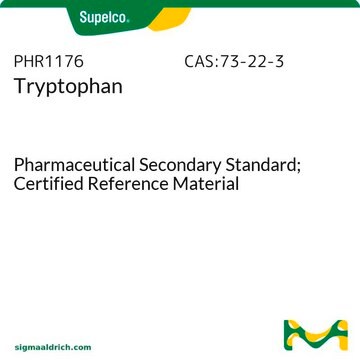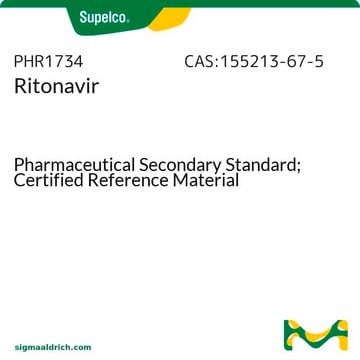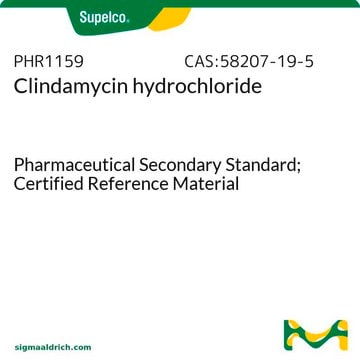PHR1591
Atovaquone
Pharmaceutical Secondary Standard; Certified Reference Material
Synonym(s):
Atovaquone, Mepron, trans-2-[4-(4-Chlorophenyl)cyclohexyl]-3-hydroxy-1,4-naphthalenedione
About This Item
Recommended Products
grade
certified reference material
pharmaceutical secondary standard
Quality Level
agency
traceable to Ph. Eur. Y0001572
traceable to USP 1044651
API family
atovaquone
CofA
current certificate can be downloaded
packaging
pkg of 500 mg
technique(s)
HPLC: suitable
gas chromatography (GC): suitable
application(s)
pharmaceutical (small molecule)
format
neat
storage temp.
2-8°C
SMILES string
OC1=C([C@H]2CC[C@@H](CC2)c3ccc(Cl)cc3)C(=O)c4ccccc4C1=O
InChI
1S/C22H19ClO3/c23-16-11-9-14(10-12-16)13-5-7-15(8-6-13)19-20(24)17-3-1-2-4-18(17)21(25)22(19)26/h1-4,9-13,15,26H,5-8H2/t13-,15-
InChI key
KUCQYCKVKVOKAY-CTYIDZIISA-N
Looking for similar products? Visit Product Comparison Guide
Related Categories
General description
Atovaquone belongs to the class of naphthoquinones with a broad-spectrum activity against parasitic infections including malaria, toxoplasmosis and Pneumocystis pneumonia. It is a potent antiprotozoal compound which aids in collapsing the mitochondrial membrane potential in a malaria parasite.
Application
Biochem/physiol Actions
Analysis Note
Other Notes
Footnote
related product
Storage Class
11 - Combustible Solids
wgk_germany
WGK 3
flash_point_f
Not applicable
flash_point_c
Not applicable
Choose from one of the most recent versions:
Certificates of Analysis (COA)
Don't see the Right Version?
If you require a particular version, you can look up a specific certificate by the Lot or Batch number.
Already Own This Product?
Find documentation for the products that you have recently purchased in the Document Library.
Customers Also Viewed
Our team of scientists has experience in all areas of research including Life Science, Material Science, Chemical Synthesis, Chromatography, Analytical and many others.
Contact Technical Service














